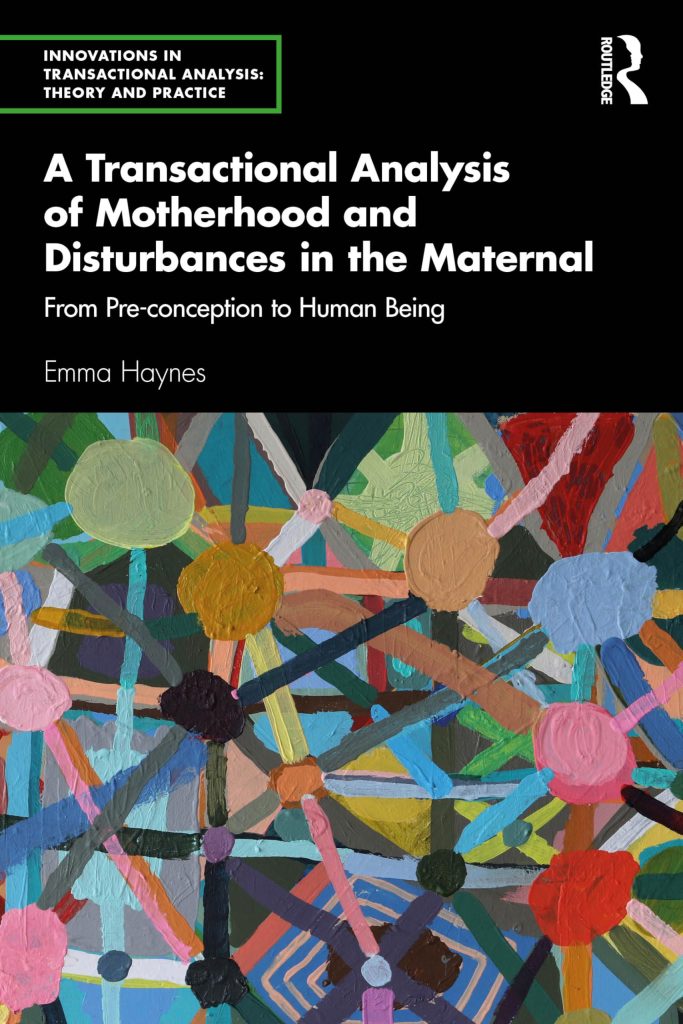
Meet The Pioneer Psychotherapist Fighting A Growing Crisis in Motherhood
Not only in the UK but globally, there is a growing crisis in motherhood that is leaving families undersupported, overstressed, and at greater risk of long-term mental illness. Perinatal psychotherapist Dr Emma Haynes is at the forefront in highlighting this issue, which, if left unaddressed, could have dire repercussions for society.
Speaking with parents during therapy sessions, perinatal psychotherapist Dr Emma Haynes says she hears the same kinds of worries and fears cropping up time and again: “I’m a useless mother”, “I am weak”, “I should be able to do this”, “What is wrong with me?”.
But these are not isolated cases, she adds. Instead, they are symptomatic expressions of a much more profound problem; one that is affecting mums, dads, and caregivers both across the UK and the world.
And this global “crisis in motherhood”, as she describes it, has huge implications for society at large, threatening the integrity of the central pillar that shores up every home, every community, and every nation: the family unit.
“There is a widespread crisis affecting motherhood across the globe, especially in Western countries,” says Dr Haynes, who runs a practice near Winchester, Hampshire, specialising in maternal mental illness and developmental trauma.
“There are numerous factors at play, with differing intensities between countries, but the crisis is largely about costs, such as the financial burden of parenthood, the emotional, physical, and psychological strains of parenthood; and in some regions, a growing discomfort with patricarchial societies and the misogyny within them.
“In Britain and many other Western nations, many people today are deeply anxious about being able to raise their child well, or even becoming parents in the first place, because of the financial strains.
“The UK, in particular, is already the most expensive place to raise kids in the world due to the enormous cost of child care, and this has only been made worse by the ongoing cost of living crisis.
“It places lots of couples in a difficult situation. Both their incomes are necessary for survival, so they must either pay for childcare – on top of all the other costs of raising a child – or choose not to have children at all.”
Dr Haynes, herself a mother of three, says that the challenge parents face is all the more steep because of a “huge lack” of support from the government, and within the medical and social sectors.
Running in parallel, she identifies another crisis that is connected with the crisis in motherhood: a loss of connection. This is both between the caregive and child, and within parents themselves.
“Our growing reliance on technology is troubling,” says Dr Haynes. “I often see mothers around me, whether walking down the street or sitting in the playground, seemingly more interested in their phones than in interacting with their children.
“And at home, it’s often tempting to place a tablet in front of a young child to keep them distracted.
“We’re seeing families together but not interacting, instead being absorbed by their devices. This preference for digital interaction over parental connection is worrying, as it undermines face-to-face connection, leaving children yearning for attention and engagement that should be naturally directed towards them.
“Many parents don’t realise that this distraction could negatively impact their child’s mental development, and I feat that the next generation might miss out on the essential experiences required for building brain architecture crucial for connection, development, and emotional regulation.
“Parents, meanwhile, are increasingly becoming disconnected from their sense of self. I often hear clients say they should instinctively know how to be a parent, and how they feel overwhelmed and defeated with their perceived failure in this regard.
“For many, this crippling desire to be the ‘perfect parent’ is something being fuelled by unrealistic potrayals of parenthood in the media, on social media, and in society.
“So, on both fronts, the caregiver-child relationship, and within individuals, emotional and mental wellbeing is being compromised.”

Dr Haynes doesn’t shy away from the societal challenges surrounding motherhood, from issues of body image and objectification to the ongoing battles for reproductive rights and gender equality.
Dr Haynes, who chose to specialise in perinatal psychotherapy when she discovered how little support is available offer for parents across their parenting journey, believes that the crisis in motherhood connects with rates of maternal mental illness.
Health service statistics from first-world countries like the USA and UK conservatively estimate that up to one fifth of women experience some form of mental illness during the perinatal period – that is, the period between becoming pregnant and up to a year after giving birth.
“This is likely just the tip of the iceberg,” she continues. “Many women never report these issues to medical professionals due to the stigma, shame, and fear of having their baby taken away and placed into social care.
“And perinatal mental illness doesn’t just vanish after the child’s first birthday. If left untreated, it can leave many women – and men, too, as I define ‘maternal’ as whoever is the primary caregiver to a child rather than by gender – feeling distressed for years after their negative experiences.
“Children, too, can be heavily impacted. The mother is of vital importance for the healthy development of an infant and we often talk about the first 1,000 days of an infant’s life as being crucial for giving them the mental wiring to be ready for their life journey.
Dr Haynes, who has published two books on the crisis in motherhood – 2022’s Motherhood and Mental Illness: A Relational Treatment Approach and A Transactional Analysis of Motherhood and Disturbances in the Maternal: From Preconception to Human Being, which has just been released – says that to date there has been a “shocking lack of recognition” by governments about how this crisis could, if left unaddressed, have dire consequences for societies.
She said: “Parenting is a crucial aspect of human life, and the lack of support and high costs associated with it may contribute to rising levels of anxiety and mental illness worldwide, especially among children and teenagers, where it is already at record level.
“These challenges also contribute to declining birth rates in some regions. Ignoring the significance of raising future generations could have serious consequences not just for families but for the future of humanity.”

Dr Emma Haynes’ latest book, A Transactional Analysis of Motherhood and Disturbances in the Maternal, has just been released. Her nuanced exploration of societal pressures and expectations adds a critical dimension to the conversation, making this book not only a valuable resource for clinicians but a call to action for societal change.
While Dr Haynes says it is ultimately up to policy makers to put in place greater measures to support and protect families across the parenting journey, she is helping lead the fight against the crisis through her work.
As well as the clinical support she provided to clients, and her contributions to academic literature on the crisis, she is dedicated to educating both the general public and healthcare practitioners about the issue, and in formulating appropriate treatments.
As part of this, in 2021 she established an international group for psychotherapists, Our Evolution, which serves as a platform to connect perinatal psychotherapists with the aim of sharing and expanding knowledge and training on maternal mental illness.
“For many years, I worked alone and felt isolated, as I seemed to be the only one in the transactional analysis world interested in motherhood,” she explains.
“I needed my own support network of supervisors, peers, and mentors, and recognised that others entering this field would also need support.
“It was for these reasons that I established Our Evolution, which serves as a forum and meeting place. Here, we can collaborate, debate, question, and challenge each other while providing mutual support.
“Maternal mental illness is woefully underresearched at present and we need to change that, delivering cross-modality, international research.
“This will not only help clients but underline why a major and urgent shift in how governments, society and our systems misperceive and undervalue mothering and parenting.
“It frustrates me that in many societies and cultures, mothers are not considered important enough to receive the maternal and mental support they need, especially when the family is recognised as the cornerstone of society.
“Parents need support to raise their children in a way that provides them with the safety, security, and connection required to develop into resilient and resourceful individuals.
“This is a fundamental human right, and I am committed to bringing this matter the attention it desperately deserves.”
A Transactional Analysis of Motherhood and Disturbances in the Maternal: From Preconception to Human Being by Dr Emma Haynes (Routledge) is out now on Amazon, available in paperback and eBook formats, priced £29.99 and £21.99 respectively. For more information, visit www.emmahaynes.co.uk
APPLY TODAY
100 Top Global Women Entrepreneurs – Global Woman Magazine
Our Journey in 12 Months:
Our Journey in 12 Months – Global Woman Magazine
5 Things That Show Money is Not Evil:
5 Things to Show That Money Is Not Evil – Global Woman Magazine
Global Man Magazine Page:
Global Woman, Global Man: Socials:
Global Woman Magazine (@global_woman.magazine) • Instagram photos and videos






